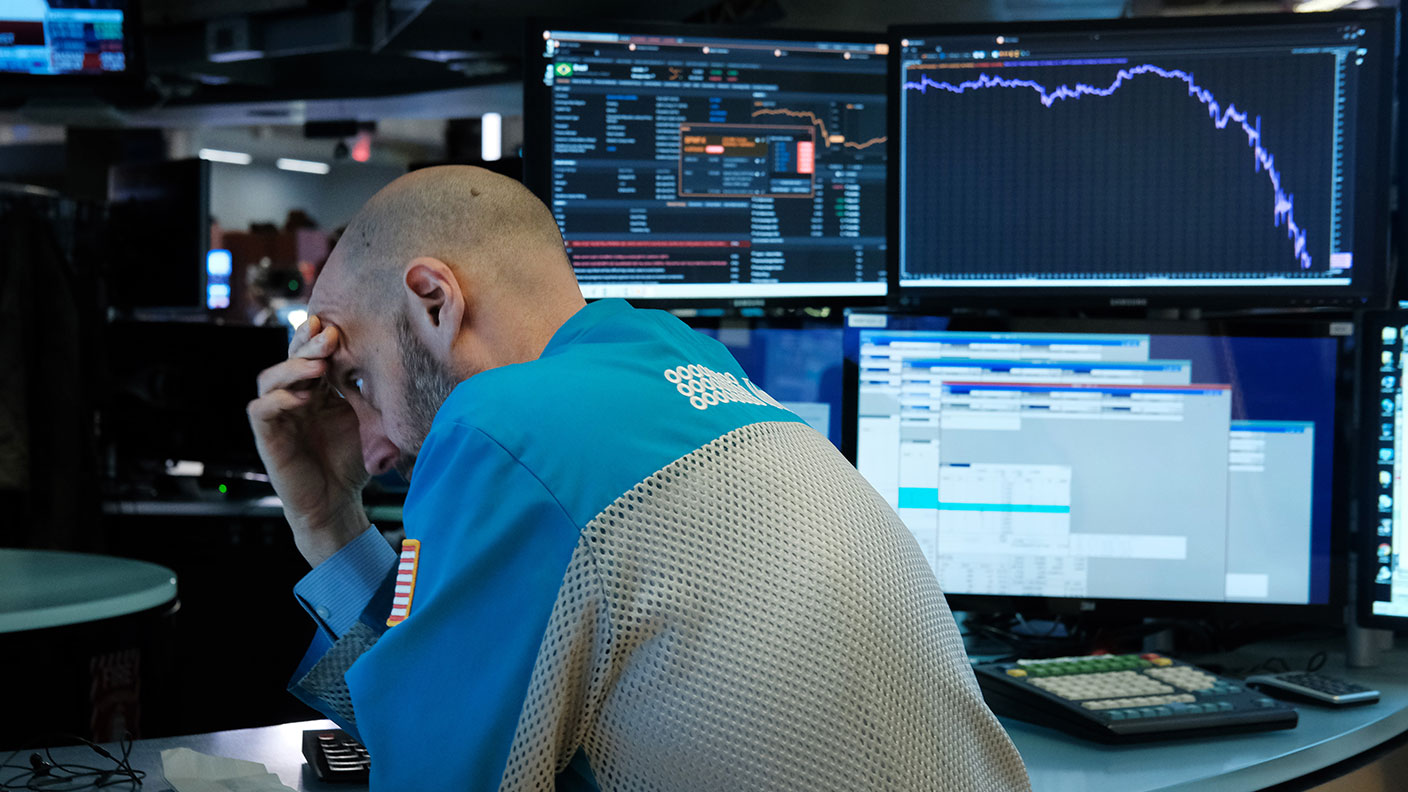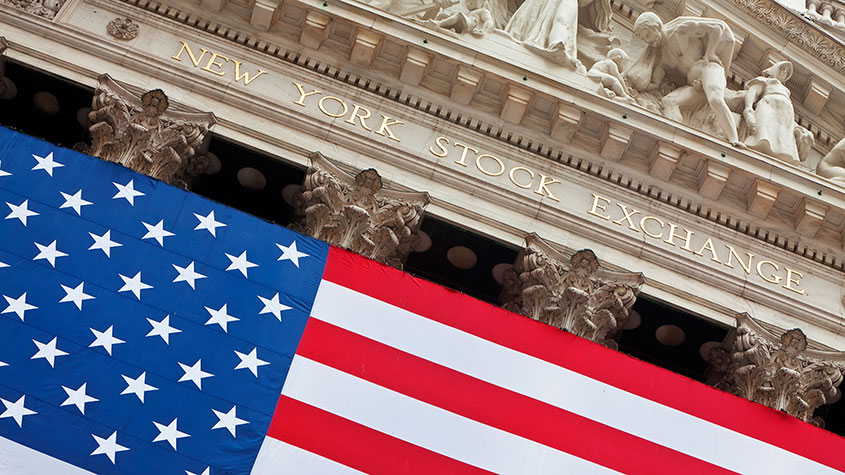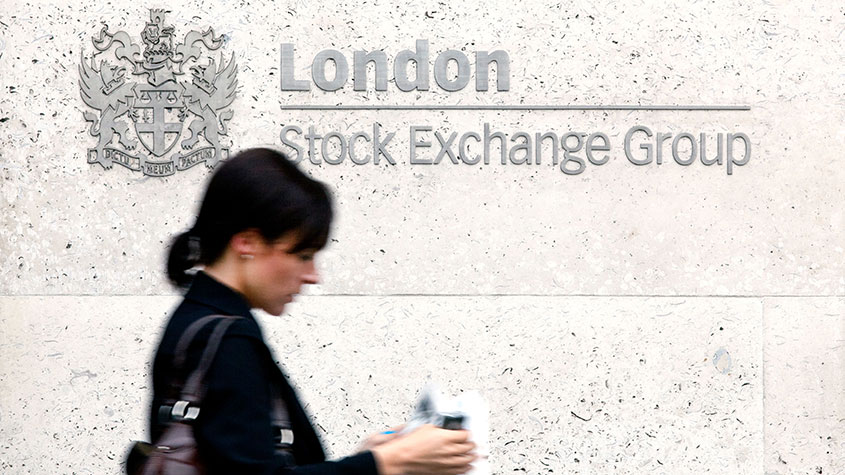Stockmarket crash: more to come
The stockmarket crash was hard and sudden – and it might not be over yet. But while the short term outlook is awful, says Merryn Somerset Webb, that does not mean that the long term does not exist.


Get the latest financial news, insights and expert analysis from our award-winning MoneyWeek team, to help you understand what really matters when it comes to your finances.
You are now subscribed
Your newsletter sign-up was successful
Want to add more newsletters?

Twice daily
MoneyWeek
Get the latest financial news, insights and expert analysis from our award-winning MoneyWeek team, to help you understand what really matters when it comes to your finances.

Four times a week
Look After My Bills
Sign up to our free money-saving newsletter, filled with the latest news and expert advice to help you find the best tips and deals for managing your bills. Start saving today!
I was at school when the FTSE All Share crashed in October 1987. That crash was as sudden as this one.
On 15 October, the UK government published the sale details of its remaining stake in BP (at the time, this was to be the world’s largest equity listing). The price was set at 330p. No one was worried. By the 20th, the price was down to 286p and Nigel Lawson was under pressure to pull the issue – using a slightly dodgy force majeure clause to do so. He refused and the shares closed at 85p on the first day of dealing.
Our economics teacher asked on the 21st if any of us knew what had happened. We did not. That is the way it should be. What difference should the level of the stockmarket make to teenagers? It’s just one reminder of how this crisis is different. It’s a real force majeure – comprehensible to, and affecting everyone.
MoneyWeek
Subscribe to MoneyWeek today and get your first six magazine issues absolutely FREE

Sign up to Money Morning
Don't miss the latest investment and personal finances news, market analysis, plus money-saving tips with our free twice-daily newsletter
Don't miss the latest investment and personal finances news, market analysis, plus money-saving tips with our free twice-daily newsletter
Is it anywhere near over yet? Probably not. This crash hasn’t been caused by fragility in the system, but it has certainly been exacerbated by it. We went into it overvalued and overleveraged.
To justify the market levels at January 2020, we needed a strong economy and wonderful earnings season. Instead, we are going to get a sudden and extraordinarily bad global recession (maybe even a depression – a 10% fall in GDP), coupled with relentlessly nasty earnings downgrades (this is one of the very few certainties left in life, by the way).
The worse those look, the more confusing attempts to value this market will get. Note too that despite all the trauma and panic, the US market (and most others) are still only back to where they were 15 months ago in December 2018, when all this was still a distant nightmare, despite the fact that the entire global economy has now come to a hard stop pretty much instantaneously.
This is a reminder of just how intense the upward run of the last few years has been – and how there might be some way down still to go. That might particularly be the case for the US market which remains the only one not trading at well below average valuations on most traditional measures.
What might turn things around?
So what might turn all this around? Another 20%-odd fall that makes things so cheap everyone buys. A vaccine. An efficient treatment. Us all waking up and finding it was just a bad dream (we’ve been isolating for a week – I’m watching too much daytime telly already). More certainty as to when the recession ends, beyond a vague idea that it is about three months. On the plus side, we do know more about this recession in terms of its causes and its likely end than would usually be the case.
However, I think the thing to watch for is a co-ordinated government action that really is so massive it can’t be ignored. There’s been a lot of it about already. Rates have been cut everywhere and liquidity pumped into markets.
On Thursday, the ECB intervened again. It is to “expand its balance sheet” (this is a euphemism for print money) by another €750bn to buy securities. Later the same day, the Bank of England had another go, bumping up QE and cutting the main bank rate another 0.15% to 0.1%.
Three months ago, I was sure UK rates would never go negative (the downsides are too obvious). Not any more. But the real deal here is not going to be monetary policy – which will never be enough alone. All central banks can do is tee things up for governments to enter a fiscal frenzy and that process is very much under way.
The chancellor has already promised the equivalent of 15% of GDP – some £330bn of loan guarantees to business and more if it is needed (it will be). In France, President Macron is doing more. He will spend enough to make sure that “no company of any size will be allowed to go bankrupt”. Denmark has come up with a system to lend state-backed cash to any firm losing more than 50% of their turnover as a result of the virus.
In the US they have already started having talks about giving up on the middle man of corporations and just sending every adult a cheque. And everywhere there are conversations under way about how to replace the incomes of absolutely everyone affected in any way by quarantines, lock downs and general misery. That’s going to happen – after all, if a government takes action (however necessary) that destroys your income they have to replace it.
A debt jubilee for all
We might even soon see something that’s been discussed in once-niche academic circles for a while – a debt jubilee to help everyone out the other end. Perhaps we just credit every account in the UK with £10,000. If you have debt, it has to go straight into that. If you do not, you just get the cash to spend or save.
We might have to do this for companies too – US corporate debt to GDP is at an all-time high. Who, you might ask, will pay for all this? The new answer is that in the immediate, no one obvious will. Central banks will simply print the cash and hand it over to governments who will pass it on to whoever they like (call it helicopter money, modern monetary theory, monetisation, the People’s QE or whatever – however you cut the technical chat, it is all the same thing).
The new Bank of England governor Andrew Bailey is already partly on board. He has said he is OK with printing money to fund government infrastructure projects. And if he is OK with it for that, why not with the rest? After all, having solvent companies and individuals is as much a part of our economic infrastructure as a new train set.
Without the former we won’t be needing the latter. But this has to be fast. There isn’t time for protocols, form filling and fraud prevention measures. There will be leakage. It’s going to be maddening and it’s going to lead us into all sorts of long-term trouble. But it will happen. In an environment in which everyone is asking for help, in which the pain is real, and in which governments have managed to create an academic framework (or figleaf) for helicopter money, there will be new money in every pocket.
While we are mid panic, it is hard to turn this into useful investment advice beyond noting that the fact that the short term is bloody awful does not mean that the long term does not exist.
Not everything comes good: BP is currently trading at 240p! But an increasingly interesting number of stocks are cheap now and most will eventually recover. In the meantime, those of you who do not hold gold really should get some. Mine hasn’t done much to protect my portfolio this week (everyone has been desperate for ready cash and gold is easy to sell). But it will.
No one is worried about inflation today. They think that the deflation forces embedded in the economy are such that it will never happen. But print and spend enough money and it will happen. Every crisis leaves a legacy – this one will too.
• This article was first published in the Financial Times
Get the latest financial news, insights and expert analysis from our award-winning MoneyWeek team, to help you understand what really matters when it comes to your finances.

-
 Japanese stocks rise on Takaichi’s snap election landslide
Japanese stocks rise on Takaichi’s snap election landslideJapan’s new prime minister Sanae Takaichi has won a landslide victory in a snap election, prompting optimism that her pro-growth agenda will benefit Japanese stocks
-
 Alphabet 'is planning a 100-year bond': would you back Google for 100 years?
Alphabet 'is planning a 100-year bond': would you back Google for 100 years?Google owner Alphabet is reported to be joining the rare century bond club
-
 Is it different this time for Japanese stocks?
Is it different this time for Japanese stocks?Analysis Nikkei 225 Index has jumped 19.8% this year, and there are signs the rally could continue.
-
 As China reopens, why pick an income strategy?
As China reopens, why pick an income strategy?Advertisement Feature Yoojeong Oh, Investment Manager, abrdn Asian Income Fund Limited
-
 Is Japan the best market to invest in now?
Is Japan the best market to invest in now?Opinion Japan puts Western economies to shame and offers good value for both equity and bond investors, says Max King.
-
 The highest yielding S&P 500 Dividend Aristocrats
The highest yielding S&P 500 Dividend AristocratsTips Dividends are a key component of investment returns in the long-term. A portfolio of dividend aristocrats is a great way to build wealth and a sustainable income stream.
-
 2023 will be a bumper year for stocks. Here’s how to play the rally
2023 will be a bumper year for stocks. Here’s how to play the rallyTips Dominic Frisby explains why he thinks the market rally could have further to run in 2023 despite macroeconomic headwinds
-
 China’s post-covid investment boom off to a slow start. Should you still invest in China?
China’s post-covid investment boom off to a slow start. Should you still invest in China?Advice Investors are no longer bullish on the China shop but the gloomy consensus on Beijing’s economy might be unfair. Should you invest in China?
-
 Stock market crash? This time it’s (slightly) different
Stock market crash? This time it’s (slightly) differentOpinion The bears expecting a stock market crash have got it wrong, says Max King.
-
 3 UK shares to buy yielding up to 17%
3 UK shares to buy yielding up to 17%Tips 3 UK shares top stocks to buy now, according to Alex Harvey of Momentum Global Investment Management.